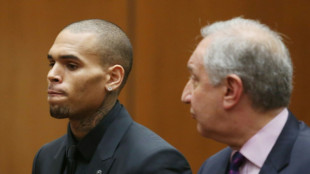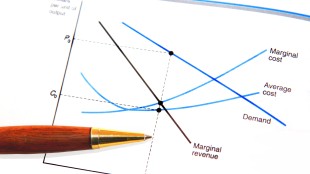
-
 Bank of Japan hikes interest rate to 17-year high, boosts yen
Bank of Japan hikes interest rate to 17-year high, boosts yen
-
Catalonia eyes reversal of business exodus after big bank returns

-
 Tajikistan launches crackdown on 'witchcraft' and fortune-telling
Tajikistan launches crackdown on 'witchcraft' and fortune-telling
-
Bank of Japan hikes interest rate to 17-year high, signals more

-
 Asian markets build on Trump rally, yen climbs after BoJ cut
Asian markets build on Trump rally, yen climbs after BoJ cut
-
Survivors strive to ensure young do not forget Auschwitz

-
 Asian markets build on Trump rally, yen steady ahead of BoJ
Asian markets build on Trump rally, yen steady ahead of BoJ
-
OpenAI unveils 'Operator' agent that handles web tasks

-
 Bamboo farm gets chopping for US zoo's hungry new pandas
Bamboo farm gets chopping for US zoo's hungry new pandas
-
Fear in US border city as Trump launches immigration overhaul

-
 242 mn children's schooling disrupted by climate shocks in 2024: UNICEF
242 mn children's schooling disrupted by climate shocks in 2024: UNICEF
-
US Republicans pressure Democrats with 'born-alive' abortion bill

-
 Trump Davos address lifts S&P 500 to record, dents oil prices
Trump Davos address lifts S&P 500 to record, dents oil prices
-
Between laughs and 'disaster', Trump divides Davos

-
 Hundreds of people protest ahead of Swiss Davos meeting
Hundreds of people protest ahead of Swiss Davos meeting
-
US falling behind on wind power, think tank warns

-
 US news giant CNN eyes 200 job cuts, streaming overhaul
US news giant CNN eyes 200 job cuts, streaming overhaul
-
Rubio chooses Central America for first trip amid Panama Canal pressure

-
 Wall Street's AI-fuelled rally falters, oil slumps
Wall Street's AI-fuelled rally falters, oil slumps
-
Trump tells Davos elites: produce in US or pay tariffs

-
 Progressive politics and nepo 'babies': five Oscar takeaways
Progressive politics and nepo 'babies': five Oscar takeaways
-
American Airlines shares fall on lackluster 2025 profit outlook

-
 France to introduce new sex education guidelines in schools
France to introduce new sex education guidelines in schools
-
Wall Street's AI-fuelled rally falters

-
 Drinking water in many French cities contaminated: study
Drinking water in many French cities contaminated: study
-
After Musk gesture, activists project 'Heil' on Tesla plant

-
 ICC prosecutor seeks arrest of Taliban leaders over persecution of women
ICC prosecutor seeks arrest of Taliban leaders over persecution of women
-
Syria's economy reborn after being freed from Assad

-
 Shoppers unaware as Roman tower lurks under French supermarket
Shoppers unaware as Roman tower lurks under French supermarket
-
Stocks mainly rise after Wall Street's AI-fuelled rally

-
 Singer Chris Brown sues Warner Bros for $500 mn over documentary
Singer Chris Brown sues Warner Bros for $500 mn over documentary
-
J-pop star Nakai to retire after sexual misconduct allegations

-
 Leaky, crowded and hot: Louvre boss slams her own museum
Leaky, crowded and hot: Louvre boss slams her own museum
-
WWF blasts Sweden, Finland over logging practices

-
 How things stand in China-US trade tensions with Trump 2.0
How things stand in China-US trade tensions with Trump 2.0
-
Most Asian markets rise after Wall Street's AI-fuelled rally

-
 Fire-hit Hollywood awaits Oscar nominees, with 'Emilia Perez' in front
Fire-hit Hollywood awaits Oscar nominees, with 'Emilia Perez' in front
-
New rider in town: Somalia's first woman equestrian turns heads

-
 Most Asian markets extend AI-fuelled rally
Most Asian markets extend AI-fuelled rally
-
Bangladesh student revolutionaries' dreams dented by joblessness

-
 Larry Ellison, tech's original maverick, makes Trump era return
Larry Ellison, tech's original maverick, makes Trump era return
-
Political crisis hits South Korea growth: central bank

-
 Photonis Launches Two Market-Leading Solutions to Advance Single Photon Detection and Imaging Applications
Photonis Launches Two Market-Leading Solutions to Advance Single Photon Detection and Imaging Applications
-
Les Paul owned by guitar god Jeff Beck auctioned for over £1 mn

-
 Musk bashes Trump-backed AI mega project
Musk bashes Trump-backed AI mega project
-
Does China control the Panama Canal, as Trump claims?

-
 Yemen's Huthis say freed detained ship's crew after Gaza truce
Yemen's Huthis say freed detained ship's crew after Gaza truce
-
Mel B, Trump and Milei: What happened at Davos Wednesday

-
 Argentina's Milei says would leave Mercosur for US trade deal
Argentina's Milei says would leave Mercosur for US trade deal
-
Fashion world 'afraid' of Trump, says Van Beirendonck


Bank of Japan hikes interest rate to 17-year high, signals more
The Bank of Japan hiked interest rates on Friday to their highest level in 17 years and signalled more were in the pipeline despite fears of turmoil under US President Donald Trump.
The well-flagged 25-basis-point increase to 0.5 percent comes as economic data indicates the world's fourth-biggest economy was developing in line with the policymakers' expectations and follows another bumper reading on inflation.
The move, which leaves borrowing costs at the highest since 2008, was underpinned by healthy underlying inflation, firms "steadily" raising wages and financial markets being "stable on the whole", the BoJ said in a statement.
"Japan's economic activity and prices have been developing generally in line with the Bank's outlook, and the likelihood of realising the outlook has been rising," it said.
If its outlook is met, "the bank will accordingly continue to raise the policy interest rate and adjust the degree of monetary accommodation", it added.
The news, and expectations for more hikes in the future, saw the yen strengthen to 155.20 per dollar -- from 156.3 earlier -- having weakened in recent months following Trump's election and bets the Federal Reserve will slow down its interest rate cut campaign this year.
Even as other central banks have raised borrowing costs in recent years, the BoJ has remained an outlier, maintaining an ultra-loose stance in an attempt to spark growth and inflation.
But it concluded last March that Japan's "lost decades" of economic stagnation and static or falling prices were over, finally lifting rates above zero, where they had been for more than a decade in a bid to kickstart inflation and growth.
The March increase -- which was the first since 2007 -- was followed by another in July that caught investors off guard and sparked turmoil in global equity and currency markets.
This time, BoJ chief Kazuo Ueda prepared markets for an increase -- some 75 percent of economists expected one -- and the reaction was more muted on Friday.
- Trump tariffs -
"With no market turbulence after Trump's inauguration," conditions for the BoJ to hike its policy rate have been met, Ko Nakayama, chief economist of Okasan Securities Research, said before the announcement.
"Raising just 25 basis points to 0.5 percent won't cool the economy," he said before the decision was announced.
There are, however, concerns among Japanese companies that Trump could throw a spanner into the works by imposing huge tariffs on imports from key trading partners, which many economists warn could drive up inflation.
Japan's economic growth slowed in the July-September quarter, partly because of one of the fiercest typhoons in decades and warnings of a major earthquake, which did not materialise.
"The Bank of Japan is dialling back monetary policy support despite the poor run of economic data. The weak yen is a key reason," Moody's Analytics said in a note.
Data released Friday showed that headline Japanese inflation hit 3.6 percent in December, or 3.0 percent adjusted for food prices, up from 2.7 percent in November.
The core reading remained above the BoJ's two-percent inflation target, which it has surpassed every month since April 2022.
The BoJ on Friday also raised its inflation forecast for fiscal 2024 -- running to March 31, 2025 -- to 2.7 percent from 2.5 percent previously.
For fiscal 2025 it now expects inflation of 2.4 percent and 2.0 percent in 2026 -- both up from 1.9 percent previously forecast.
Marcel Thieliant at Capital Economics said inflation was set to remain above the BoJ's objective "for a while yet".
As a result "we're sticking to our forecast that the policy rate will reach an above-consensus 1.25 percent by the end of next year", Thieliant said before Friday's announcement.
kh-nf-jug-stu/dan
O.Hansen--CPN
